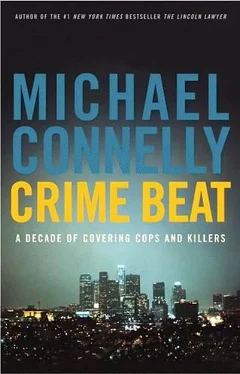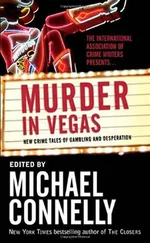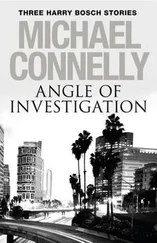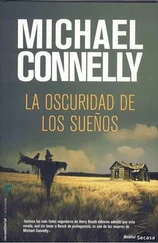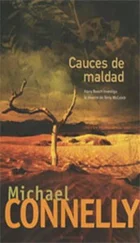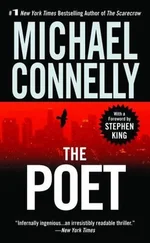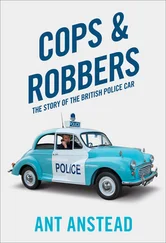There is a wonderfully understated moment in a story about the LAPD’s Foreign Prosecution Unit, which pursues Mexicans who have returned to their own country as suspects in crimes committed in the United States. Connelly details the differences in Mexican law that cause civil libertarians to assert that suspects traced by the unit to Mexico may not receive the same rights they would have if they had been captured in the United States. He writes, “Ross and his fellow officers contend that a murder suspect who flees to avoid prosecution in Los Angeles is accepting the justice system of the country he runs to. ‘You have to accept the risks that you have incurred by fleeing,’ Moya said.”
I’ll bet that raised more than one wry smile, but it’s the way it is reported with a straight face that makes it work: you understand exactly the cops’ view of the world, especially in the face of criticism you realize they see as naïve, if well-meaning.
Connelly’s empathy extends beyond the police, however, to the victims of crime, and sometimes to the criminals themselves. When you read the Wilder stories, about a South Florida serial killer who went nationwide, the story that haunts you is about the families whose daughters remain missing after a year. “We haven’t gotten her past that gas station,” repeats the mother of one girl, referring to the last place her daughter was seen. It’s the repetition that gives the words their power to move the reader.
This combination of empathy and perception creates an authorial position that is both detached and involved at the same time. Usually, the result of this formula is cynicism, and it has long been the bane of journalists and cops alike. Connelly’s creation of Bosch, who avoids becoming a hard-boiled cynic by internalizing the pain he sees, is thus a remarkable achievement, and even more so because of the way Connelly has been able to sustain that position even when writing about Bosch in the first person, as he did to great effect when he switched to the classic first-person narration for the books in which Harry operates like a classic L.A. private detective.
Only once, in The Poet, does Connelly use a journalist as his protagonist. By and large, the press does not play a major part in the Bosch series. In general reporters are treated the way Connelly himself says he was when he first arrived on the crime beat in L.A.: tolerated as an inconvenience you can’t get rid of, like ants at a picnic. Harry has a police reporter he more or less trusts, but he also gets set up by the television news, and shows much less anger about it than I did on his behalf when I read
City of Bones.
The Poet was the first of Connelly’s novels that he wrote end-to-end after leaving the journalist’s trade, his first non-Bosch stand-alone and, perhaps not by coincidence, his first bestseller. He has said that his major motivation was the fact that when he took away his files on unsolved murders, he realized how often killers got away with it, and he wanted to write a book in which the guy would get away and there would never be a sequel. He hadn’t anticipated that audience reaction would be so strong.
If you’re reading this you probably realize that eventually Connelly came around to the idea of doing a sequel. He attributed it to “recovering from my cynicism,” in large part after the birth of his daughter. He has also moved from Los Angeles back to Florida, and perhaps that has something to do with the change as well.
Compare the stories written for the South Florida Sun-Sentinel with those done later for the Los Angeles Times and you can sense some serious changes within Connelly. He has said that the newsroom at the Times was older, the veteran journalists more cynical and with a much greater sense of their own importance. You can see why. Los Angeles is a city redolent in crime, and being the backdrop for so many movies, television shows and novels gives every crime within the city more resonance. Americans have headed west for centuries, and wound up in la-la land. Latinos head to El Norte to fulfill their dreams of making a living. Asians came to build the railroads or to flee wars. The choice of the name Bosch made the point metaphorically; The Garden of Earthly Delights ought to hang in the lobby of the Los Angeles Times building.
Connelly’s attitude is that of an outsider rather than a native Angelino. He says he arrived for his job interview at the Times immediately after a major robbery, which wound up serving as the basis for The Black Echo, and said to himself, “Jeez, this is the place to be.” Being an outsider allows him the little bit of distance he needs to observe all sides of the equation. It gives him the leeway to place the nature of the city, its history and culture, as backdrop to the equation.
In Los Angeles, his view of the police and of the world of crime itself both broaden. He gains a deeper perspective of the cop’s world, both its good and bad sides. His empathy begins to be extended to the criminals, some of whom become victims themselves in that strange world of the LAPD, a sort of paramilitary bureaucracy headed by a succession of police chiefs who make Donald Rumsfeld look like Jimmy Carter.
Connelly reports both sides of the story, giving a downbeat counterpoint to the police point of view. A burglar who killed a cop in the struggle for a gun is shot and killed by the police, shot three times in the head. Twice he survives, and twice reaches miraculously for conveniently placed guns. The subtext, that he had already killed a cop, is brought to the surface, subtly but unmistakably. A car full of armed robbers shoot it out with the shotgun-wielding cops from the Special Investigations Section, who watched them rob a fast-food outlet and then surrounded them. Connelly reports the incident straightforwardly but saves for the end the revelation that the robbers were armed with unloaded pellet guns, and were thus unlikely to have chosen to shoot it out.
Harry Bosch lives within these ambiguities. His world cannot be defined, nor understood, without a feeling for the pressure under which the police operate, and the frustration endemic in the job. Understanding that helps explain the cop’s instinct to close ranks and protect one’s own. But cops are also part of a fiercely self-devouring bureaucracy. Think back to Connelly’s original description of working at the Los Angeles Times . He has said that the newsroom was more like a family, with a strict sense of hierarchy, than his Florida paper, where the staff were of a similar age and socialized outside the office. This is the big leagues. So, too, with the LAPD – arguably America ’s most visible police department.
Some of the most satisfying scenes in the Bosch canon involve his clashes with authority, from Harvey “ 98” Pounds to the Bureau of Homeland Security. Bosch has no time for careerists and turf fighters; he’s too busy trying to keep his integrity as he watches the dividing line between those who keep the rules and those who break them, between order and chaos, disappear. This is what Bosch goes home to. This is why he sits in dark rooms and tries to smooth it over with jazz.
The crime writers I most admire are the ones who do something different with the form. Hammett’s accounting of people’s lies, evasions and self-serving testimonies, with no stylistic value judgment coming between the character and the reader. Chandler ’s symphonies of simile. Marlowe’s ability to crack wise in ways that don’t occur to real people until the next day. Donald Westlake crafting Richard Stark’s bare, clipped prose, which matches Parker’s bare, clipped view of the world. George Higgins’ ability to narrate through dialogue, where his characters’ storytelling ability tells you more about them than any description could. James Ellroy’s riffing and agonizing alliterative arsenal.
Читать дальше
